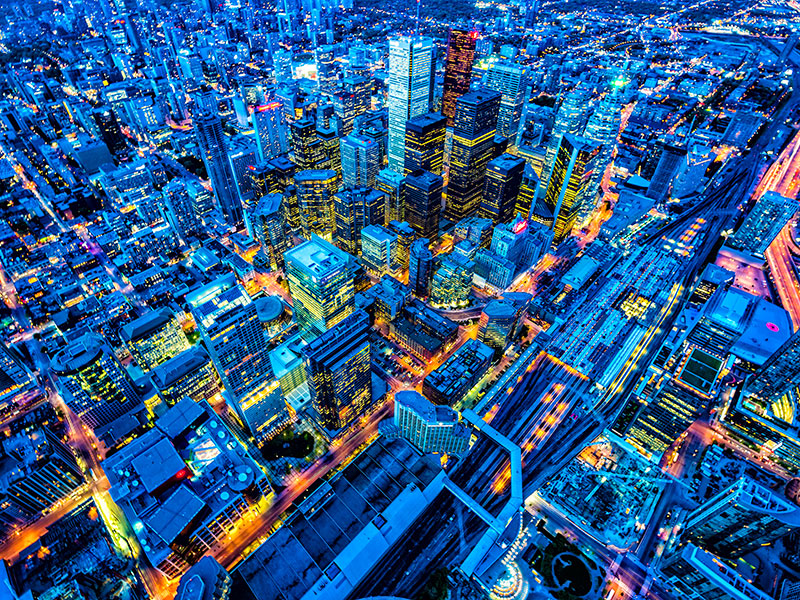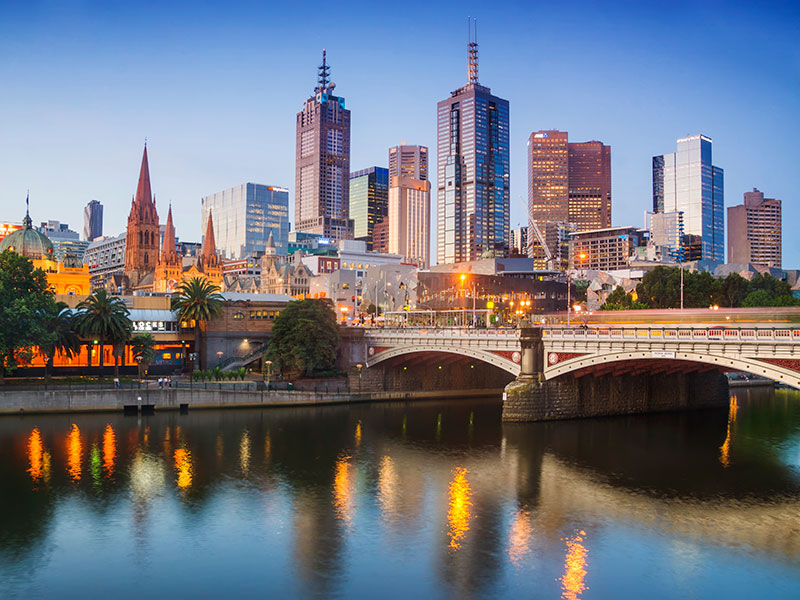Top 5 tech hubs to rival Silicon Valley
The San Francisco Bay Area is renowned for being home to the world’s most progressive tech companies. But as more investment funnels towards the sector, a number of cities are staking a claim to Silicon Valley’s tech-hub crown

Toronto’s Economic Development and Culture Division aims to foster local employment and investment, as well as encourage cultural vibrancy in a city that has long been celebrated as one of the world’s most diverse
Located in the San Francisco Bay Area, Silicon Valley is recognised as the centre of modern technological development. It boasts the headquarters of 39 businesses in the Fortune 1,000 and is home to thousands more digital start-ups. Notable companies include Adobe, Apple, Facebook, Intel, Netflix and Tesla.
Around the world, however, a number of cities are making themselves increasingly attractive to tech start-ups, with the sector becoming more lucrative and drawing increasingly substantial investments. The New Economy highlights five cities hoping to establish themselves as the ‘new Silicon Valley’.
Tel Aviv
Described by New-York-based research firm CB Insights as a “heavyweight” tech hub – rivalling London, Boston and Silicon Valley itself – Tel Aviv has attracted a high level of foreign investment. In early 2018, for example, local battery firm StoreDot received a $60m investment led by German carmaker Daimler. Consequently, the Global Financial Centres Index ranked Tel Aviv as the Middle East’s third-most competitive global financial centre in 2018.
The city also has a geographical advantage: due to its central location, Tel Aviv is easily accessible from almost anywhere in the world, with the developing markets of Africa and Asia particularly close by. In an attempt to attract foreign companies, the Israeli Government has reduced corporation tax from 25 percent to between six and 12 percent, depending on the nature of the business.
Tel Aviv is easily accessible from almost anywhere in the world, with the developing markets of Africa and Asia particularly close by
Tallinn
With a population of just 1.3 million people, Estonia has more start-ups per capita than any other country in Europe. This is in no small part down to the government’s ‘e-Estonia’ movement, which seeks to create “a borderless digital society for global citizens”. In Tallinn, the whole city is afforded access to free Wi-Fi, while children learn computer programming from an early age. Each citizen also has a digital identity assigned at birth.
Popular video-messaging platform Skype remains one of Estonia’s greatest exports. Though now headquartered in Luxembourg City, 44 percent of the company’s employees remain located in Tallinn and Tartu, Estonia’s second largest city. One of Skype’s founding developers, Estonian Ahti Heinla, went on to found Starship Technologies in Tallinn in 2014. His new company designs small self-delivery robots, which have started to appear on streets around the world.
Melbourne
In 2017, the same year it unveiled its four-year Startup Action Plan, Melbourne was named the tech capital of Australia by global real estate services provider Savills. “Our vision is for Melbourne to be recognised as the number one destination for start-ups and entrepreneurs to ‘start, grow and go global’, across Australia and Asia,” the city’s Lord Mayor, Robert Doyle, said of the plan.
Melbourne, Australia’s fastest growing city, recently experienced a 900 percent growth in its number of co-working spaces.The city’s 1,100-plus start-ups have also been able to attract investment from around the globe, with particular interest coming from China.

Toronto
As Canada’s largest city, Toronto is a breeding ground for invention. In 2017, it created more tech jobs than any other market in the world. Labelled the “Silicon Valley of the North”, Toronto has also become a hub for companies developing technology in the healthcare sector. MagniWare’s Rthm app, for example, instantly analyses the health of an individual’s heart and nervous system.
The city’s distinguished academic institutions – including the University of Toronto and the University of Waterloo – have a long-held reputation for producing some of the world’s most promising engineers and developers. What’s more, Toronto’s Economic Development and Culture Division aims to foster local employment and investment, as well as encourage cultural vibrancy in a city that has long been celebrated as one of the world’s most diverse.
Shenzhen
In the late 1970s, China initiated a policy of reform aimed at transforming the nation into a global superpower. In the Guangdong province of south-east China, three cities were established as special economic zones, designed to drive China’s fiscal growth. Among them was Shenzhen, a small agrarian village of just 30,000 people that sat on the doorstep of Hong Kong.
As with the rest of China, Shenzhen has experienced astonishing growth, rapidly transforming into a city of 12 million people and recently overtaking Hong Kong in terms of GDP. Technology has been the driving force behind Shenzhen’s phenomenal rise: home to some of China’s largest tech firms, including Huawei and Tencent, the city’s output surpasses that of many countries.













